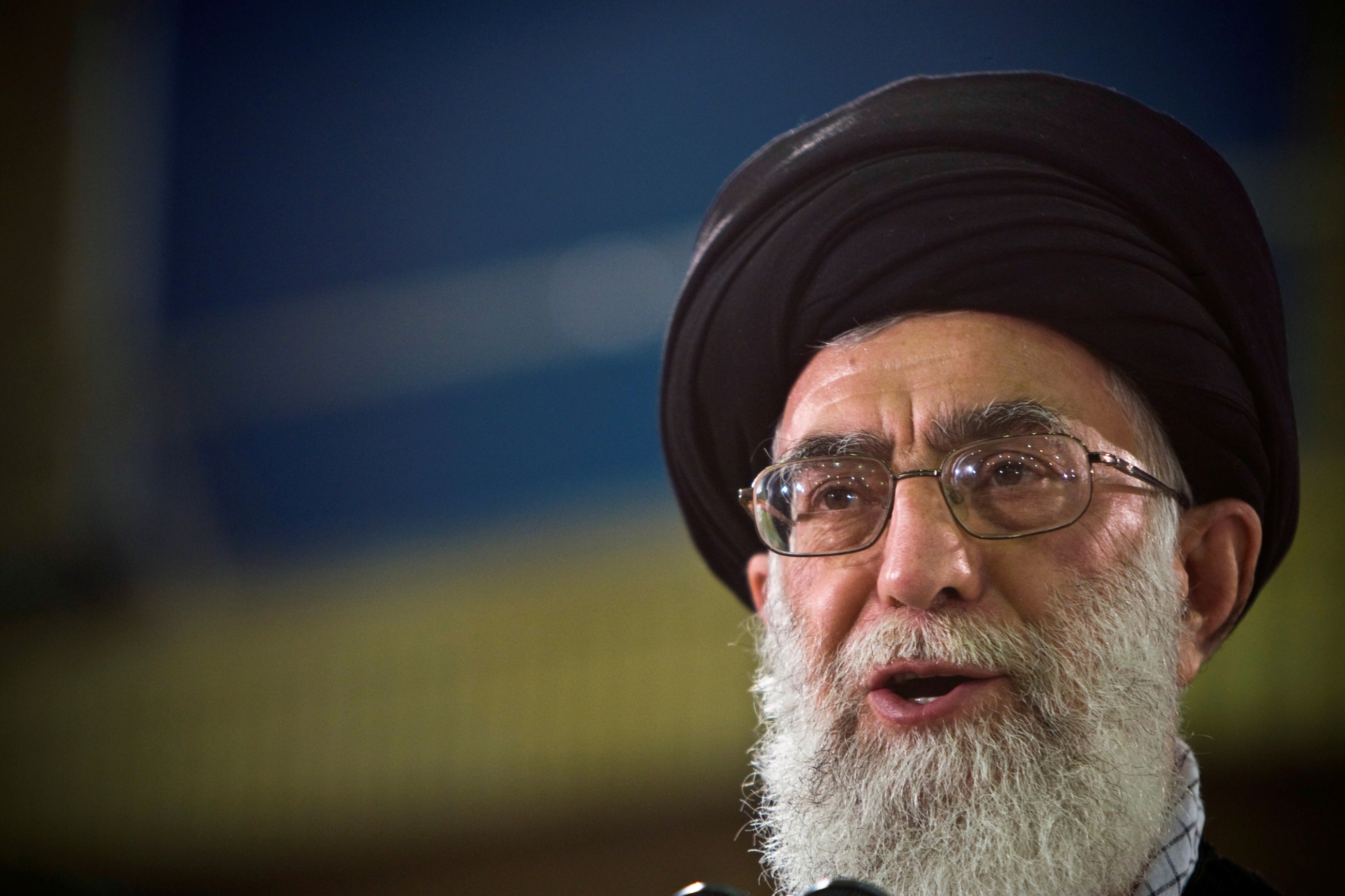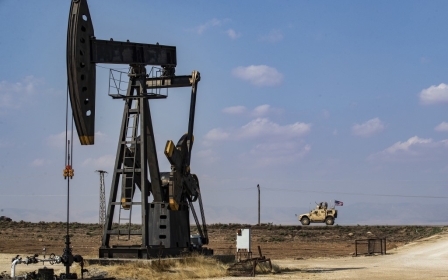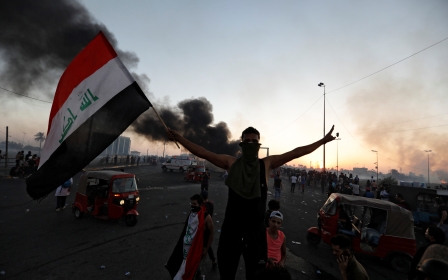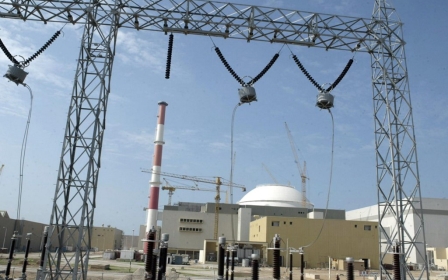US imposes sanctions on aides of Iran's Ali Khamenei

The United States is imposing sanctions on a senior branch of the Iranian military as well as nine political and military advisers of Iran's Supreme Leader Ali Khamenei, the Treasury Department has said, as Washington continues to intensify its maximum pressure campaign against Iran.
The new measures, announced on Monday, coincide with the 40th anniversary of the Iran hostage crisis - when supporters of the Iranian revolution took over the American embassy in Tehran, holding dozens of US diplomats and citizens there for more than 14 months.
"This action further constricts the Supreme Leader’s ability to execute his agenda of terror and oppression," Treasury Secretary Steven Mnuchin said in a statement on Monday.
Nine appointees of Khamenei were targeted by the Treasury Department on Monday, including the supreme leader's son, Mojtaba, who was described by the US government as "the head of Iran’s judiciary".
New MEE newsletter: Jerusalem Dispatch
Sign up to get the latest insights and analysis on Israel-Palestine, alongside Turkey Unpacked and other MEE newsletters
Hours after the sanctions were officially announced, Iranian foreign ministry spokesman Abbas Mousavi said the move was an example of America's "bullying" approach to foreign policy.
"These types of actions are only a sign of the desperation and inability of this regime in benefiting from a diplomatic and logical approach, which can be seen in the framework of the bullying view of the United States towards other countries and important global and international issues," Mousavi said, according to Iran's official IRNA news agency.
In June, the US imposed sanctions on Khamenei's office.
Treasury Department blacklists, known as special designations, freeze the targeted individuals' assets in the US and bar American citizens from doing business with them.
Monday's sanctions also targeted the General Staff of the Armed Forces, an elite military body in Iran. Washington had earlier designated Iran's Islamic Revolutionary Guard Corps (IRGC) as a terrorist group.
Since US President Donald Trump left the multilateral nuclear deal with Iran in May 2018, the United States has been imposing sanctions on various sections of the Iranian economy and political and military establishments.
The nuclear deal had stipulated that Iran would scale back its nuclear programme in exchange for the lifting of US-led international sanctions against its economy.
Despite the new sanctions, Iran has not capitulated to US demands for negotiating a new agreement that would also address the Islamic Republic's ballistic missile programme and end its support for groups like Lebanon's Hezbollah.
Still, officials in Washington say the so-called maximum pressure campaign is working and forcing Tehran to divert resources from its allies in the region.
On the anniversary of the hostage crisis, the US Department of State also announced a reward of up to $20m for credible information leading to locating former FBI agent Robert Levinson, who disappeared in Iran in 2007.
Secretary of State Mike Pompeo also vowed that the Trump administration will do everything in its power to free US citizens detained in Iran.
"We will not rest until they are reunited with their families," Pompeo said in a statement.
Middle East Eye delivers independent and unrivalled coverage and analysis of the Middle East, North Africa and beyond. To learn more about republishing this content and the associated fees, please fill out this form. More about MEE can be found here.





